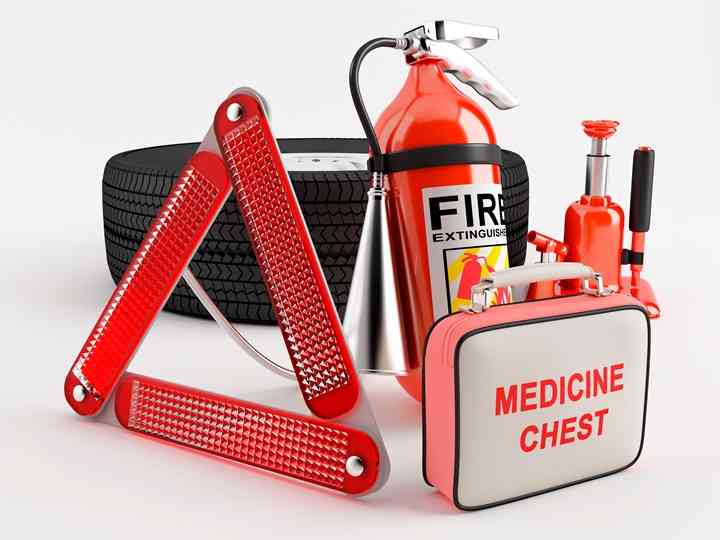When it comes to driving, preparing for the unexpected is just as crucial as routine maintenance. While we hope never to face an emergency on the road, having a well-stocked car emergency kit can make all the difference when things go awry. Whether you’re embarking on a cross-country road trip or just running errands around town, here’s a comprehensive guide to the must-have items for your car emergency kit.
1. First Aid Kit
Your first aid kit is a cornerstone of your emergency kit. It should include:
- Adhesive bandages in various sizes
- Antiseptic wipes and ointment
- Adhesive tape and sterile gauze pads
- Tweezers and scissors
- Hydrocodone or pain relievers (such as aspirin or ibuprofen)
- Thermometer and instant cold packs
Make sure your first aid kit is well-stocked and updated periodically.
2. Roadside Safety Gear
Safety on the road is paramount. Equip your vehicle with:
- Reflective warning triangles or road flares: These will alert other drivers if you’re stranded.
- High-visibility vest: Wear this to increase your visibility if you have to exit your vehicle on the roadside.
- Flashlight and extra batteries: Essential for low-light situations, especially if you need to work on your car at night.
3. Basic Tools and Supplies
A few basic tools can go a long way in a pinch:
- Multipurpose tool or basic tool kit: Including screwdrivers, pliers, and wrenches.
- Jumper cables: To help restart your car if the battery dies.
- Tire iron and jack: For changing a flat tire. Make sure the jack is the right size for your vehicle.
- Spare tire: Regularly check that it’s in good condition and properly inflated.
4. Emergency Car Essentials
These items can be lifesavers in various scenarios:
- Portable battery charger: If you don’t have jumper cables, a portable charger can start your car or power your devices.
- Tire sealant: Temporary solution to fix a flat tire and get you to the nearest service station.
- Roadside assistance contact: Keep the contact number for your roadside assistance service in your kit.
5. Weather-Related Gear
Depending on your location and the season, include items to handle different weather conditions:
- Blanket or sleeping bag: For warmth in case you’re stranded in cold weather.
- Water bottles: At least a few bottles to stay hydrated.
- Non-perishable food: Energy bars or snacks that can last a while.
6. Miscellaneous Items
Don’t overlook these handy additions:
- Portable phone charger: Ensure your phone stays charged even if you need to call for help.
- Duct tape: For temporary fixes on a range of issues.
- Paper maps: In case your GPS or smartphone dies and you need to navigate manually.
7. Documentation and Emergency Contacts
Keep important documents and information accessible:
- Vehicle registration and insurance information: Easily accessible in case of an accident or roadside stop.
- Emergency contact numbers: Both for family and your car’s roadside assistance service.
Conclusion
While it might seem like overkill to some, a well-prepared car emergency kit is a small investment in peace of mind. Regularly check and update your kit to ensure everything is in working order and that nothing has expired. By having these essentials on hand, you’ll be ready to tackle any unexpected situation that comes your way. Drive safe and stay prepared!
